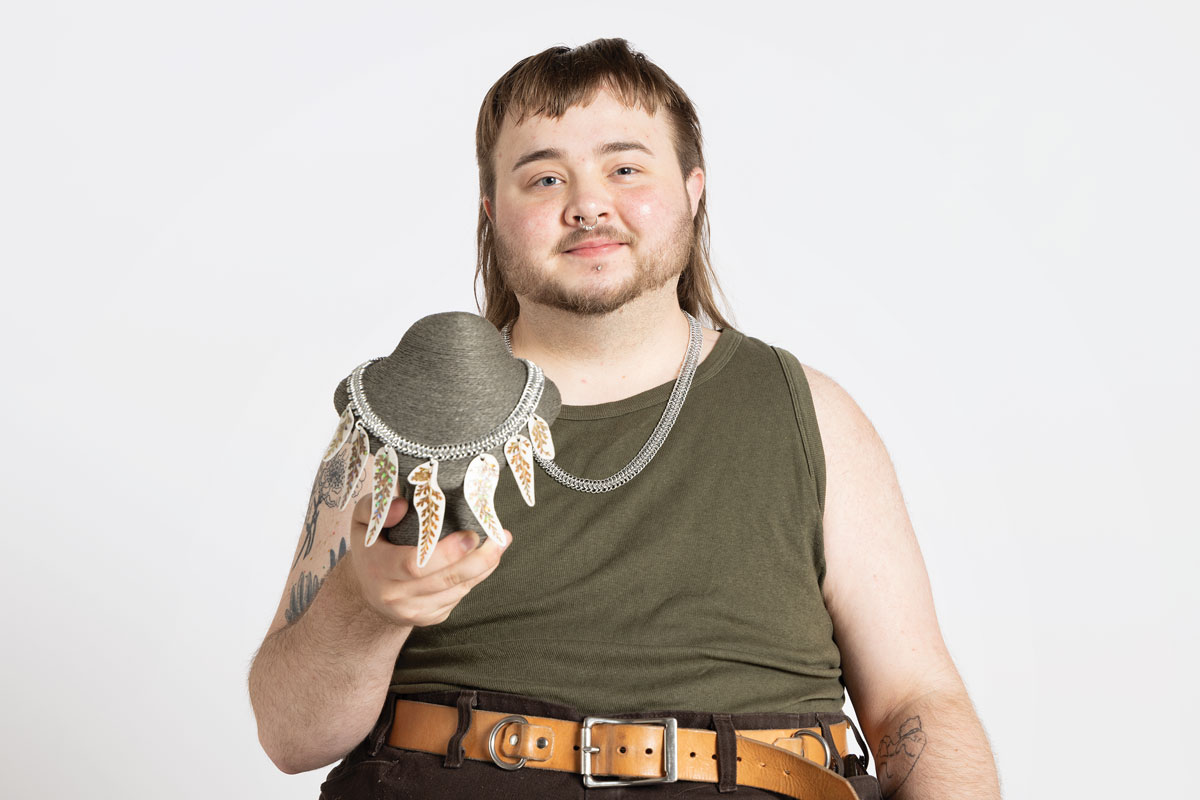Capitalism, Labor, and Disability in the U.S.
Meet anthropology major Bequerel Yonaka.
Hometown: Portland, Oregon
Thesis adviser: Prof. Charlene Makley [anthropology]
Thesis: “In the Shadow of Capitalism: Experiences of Disabled USians in the Contingent Workforce”
What it’s about: I investigated labor conditions for part-time, gig, contract, and self-employed workers who identify as disabled, neurodivergent, or chronically ill, as well as the history of disability labor policy in the U.S. A lot of people are suffering, but the ways communities have formed around securing basic needs that so many are lacking embody a unique resilience and creativity.
What it’s really about: People doing their best to survive in a world that wants to stamp them out.
In high school: One of a handful of out transgender students and desperate for my life to begin.
Influential professor: Prof. Michelle Wang [art history] was the first person who made me feel like I belonged here.
Influential book: Skin, Tooth, and Bone: The Basis of Movement Is Our People is a collection of essays, definitions, and resources for learning and teaching disability justice principles. We bought a dozen copies for the Students with Disabilities Coalition, and the principles form the bedrock of my personal, political, and academic philosophies.
Concept that blew my mind: Learning that there was a word for workers who are outside of a full-time-with-benefits employment structure! Almost every disabled person I know has some strange combination of gigs and jobs to make ends meet, and I was so excited to learn that economists call them contingent workers because it felt like a phenomenon worth studying.
Cool stuff: Organizing the Students with Disabilities Coalition for several years was one of my greatest joys at Reed. Fostering a disabled community in higher education is very difficult—there is a lot of stigma and gatekeeping baked into institutions like these, but I’m so proud that we as a group have created a space where disability can be a source of pride and solidarity. I also loved working as a barista at the Paradox. Not just because of the free coffee, but because I got to be part of sustaining a really special piece of Reed’s institutional memory.
Challenges faced: My first experience with disability accommodations was at Reed, and at first I was reluctant to actually use them. I had to learn how to write an email requesting an extension, how to explain my needs while maintaining my own boundaries, and how to advocate for other students when their accommodations were challenged. Working through these issues with other disabled students helped me become more assertive.
How Reed changed me: I’ve discovered I have no interest in being an academic. I’m grateful for the skills I developed here, but I’d much rather use them to advance radical structural change than write about all the change that needs to happen for the rest of my life.
Help along the way: I benefited greatly from financial aid, particularly the sizable Reed Grant that has kept my debt relatively low.
Awards, fellowships, grants: Anthropology grant for my thesis, commendations for academic excellence in 2020, 2021, and 2022.
What’s next: I’m finishing an internship at Multnomah County and pursuing permanent employment in the Department of County Human Services.
Tags: Academics, Students, Thesis, What is a Reedie?
